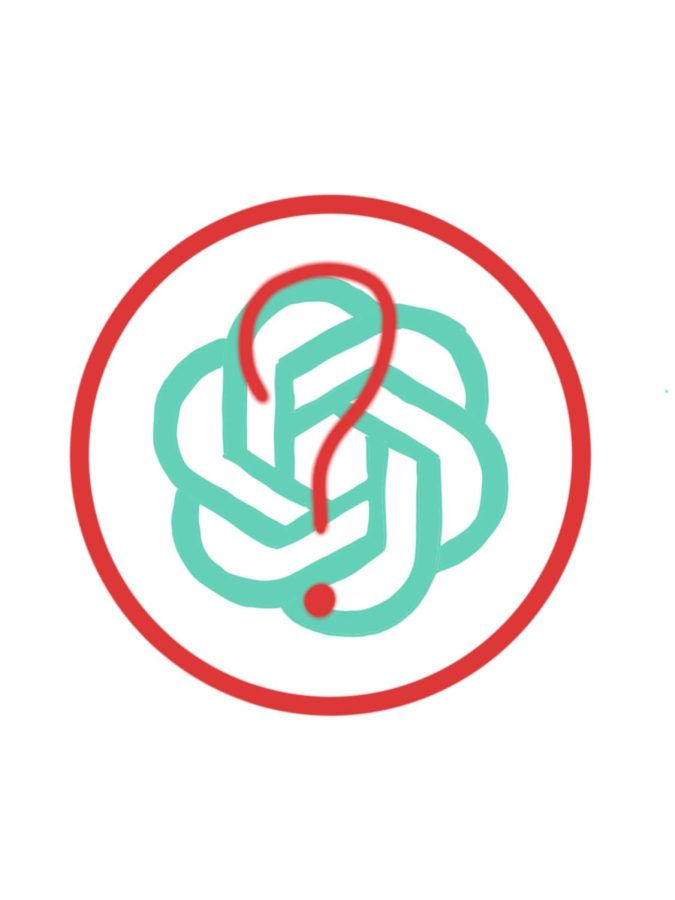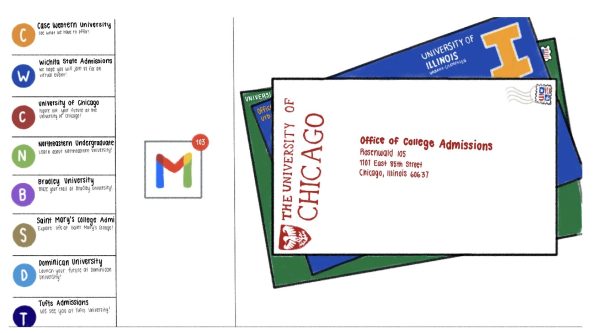Do the Benefits of AI Outweigh the Risks?
As the world advances, so too does our technology. Most recently in the world’s hot seat is AI, or artificial intelligence. This is technology that can perform tasks that would typically require human insight. Artificial Intelligence has been in the spotlight in schools lately with OpenAI’s ChatGPT, a chatbot you can ask questions and give prompts to and it will respond in a human-like way. In a school environment, this is a point of tension, worrying teachers that their students will use ChatGPT to do writing assignments, but the question extends to the rest of the world. Do the benefits of AI outweigh the risks?
First off, how does ChatGPT work? ChatGPT generates responses based on a variety of parameters such as: prompt, temperature, “n”, or number of, and seed in how it generates responses. The prompt is what the user types in directly and is the most important part of the gen-erated response, the temperature is the creativity, “n” is the number of generated responses, an the seed is like a random number generator, this controls which response you will get out of the bot. However, the latter three are not always needed when inputting text, and the bot can provide a response even if all it is given is a prompt like “explain the theory of relativity.” These restrictions provide unique answers to the questions posed by users, but why do people use AI?
AI based tools such as ChatGPT have many uses in the real world. Whether coming to the best decision in a medical procedure or just drafting an outline for a paper, AI infused tech can be used as a versatile tool. These chatbots can cut out the middle man in the painstaking process of gathering information, as it can answer specific questions and as long as it is used as an extension of in school education rather than a replacement, it can be very helpful. It can also come up with basic, effective, code to be used in a larger scheme of things. Computer Science teacher Mr. Kotty states, “ChatGPT is a tool. Humans are tool-users. As for any tool though, students must be taught how to use it.” Throughout human history tools like nukes, guns, and dynamite have been developed and criticized and used nonetheless. However, there are some valid concerns with AI.
Most of the concerns with chat and artbots stem from their content sourcing. Where does ChatGPT learn what happened during the Revolutionary War? How did Dall-E learn to generate an image of a bowl of fruit? This chatbot gathers information and generates something from it, but the bot cannot yet provide direct links to where it sourced its information because it has such a wide range of sources, nonetheless people are concerned about ethics and plagiarism. However, the issue of sites using your information is not new. There are differences between an app tracking your data to personalize ads and a site using your data to train a AI, but they share an ethical issue. However, the issue comes into play with large companies. In order for these tools to remain ethical and beneficial, they must be legislated and regulated. Some examples are authorized usage for data and afflicted user awareness to keep users in the loop.
By and large, AI’s development is a good thing and a large step in technological advancement. When the cellphone was first released, it was not very popular, and was not largely adopted until almost 20 years after its invention. People said it would destroy society as we know it, but here we are 50 years later, and the world has not ended. Mr Kotty brought up a story from ancient Egypt where the god of writing, Thoth, came to the king, Thamus, and presented writing to him. The king responded that writing would diminish people’s memory and “give humanity the show of wisdom without the reality.” Advances in technology have been scrutinized throughout history, and while there are valid criticisms to AI, it is a helpful tool that can be utilized by many.
Overall, artificial intelligence is the latest step in tech advancement. In a little under two years chatbots, artbots, and other AI tools have grown exponentially in both their ability to learn and the quality of their outputs. Most recently on March 14th, 2023, GPT4 was released. It can receive image as well as text inputs and scored among the top 10% of test takers on the bar exam, compared to the bottom 10% achieved by GPT 3. It also did significantly better on AP tests that previous models. The differences between the two releases are staggering and show just how quickly AI tech is growing. It is not perfect, still needing moderation and regulation, especially pertaining to how it sources its information. However, AI will continue to become a useful part of society in the near future. So enjoy it, ask the chatbot its favorite color, try to figure out what to get your mom for her birthday, and remember that with each question you ask, you contribute to the advancement of the future as we know it.








